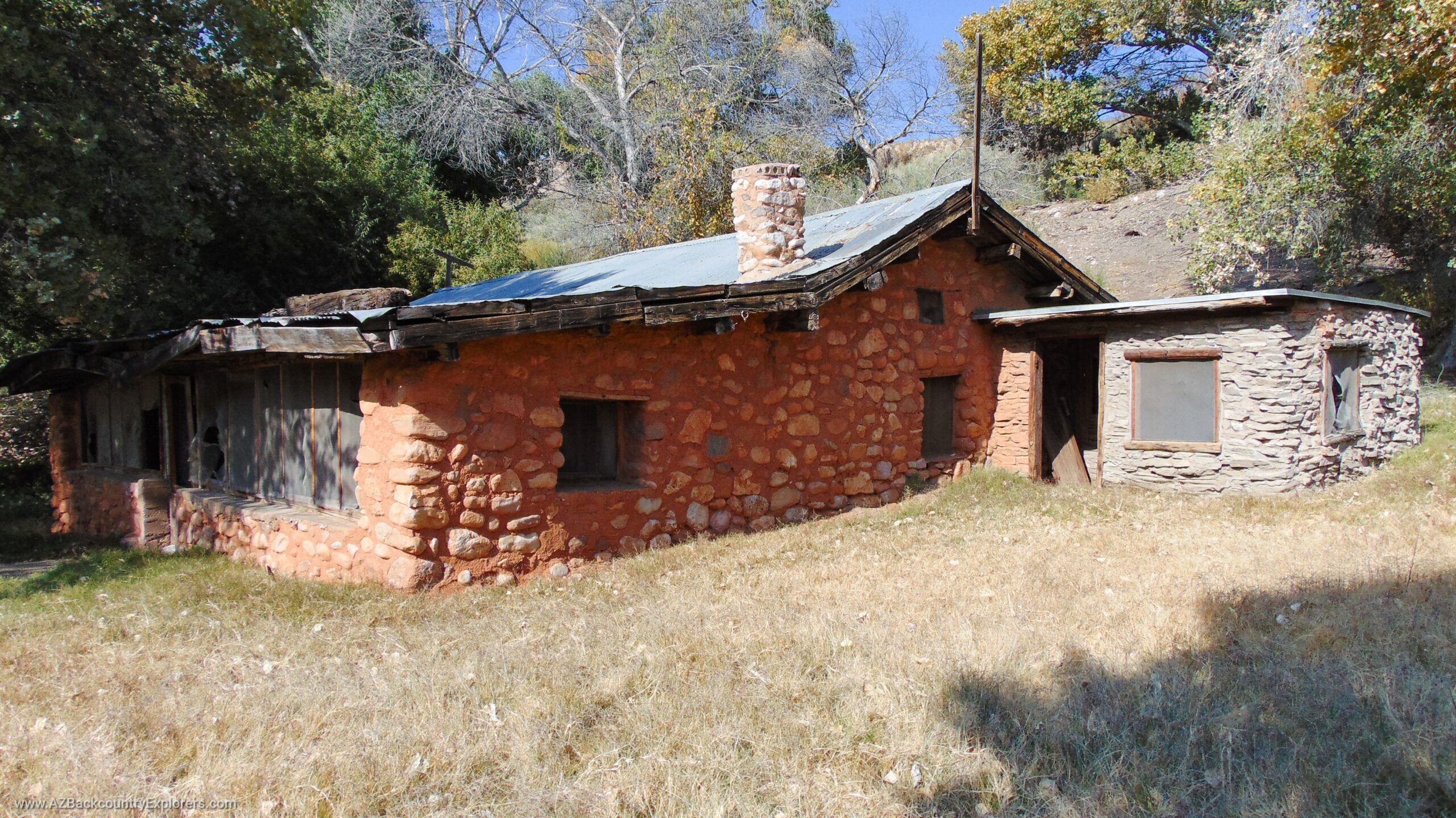Your cart is currently empty!
Posted in
We often express the radical ideology that drives the management of our public lands and waters. Nothing solidifies our point like the radical Constitutional Amendment currently sitting in the Arizona Secretary of State’s Office.
If you have been following along, you may know our friends at Protect The Harvest have been battling a succession of ballot initiatives in several states that aim to turn basic husbandry practices used by ranchers into sex crimes. As Protect The Harvest has revealed, radical vegan and animal rights activist groups are gaining traction across the country, and with that, their influence on policy is here in Arizona.
The Citizens of Western Watersheds is a radical environmental group based out of Hailey, Idaho, which, on its website, claims that public lands, wildlife, and recreation are threatened by livestock grazing. Their website employs typical doom-and-gloom scare tactics with the distinguishing “act now or the wolves will die” scenarios for which animal rights activist groups are known.
Founded on a personal vendetta, the Citizens of Western Watersheds is known for being outspoken and has grown into a large organization with the reduction and eradication of cattle grazing as the primary focus.
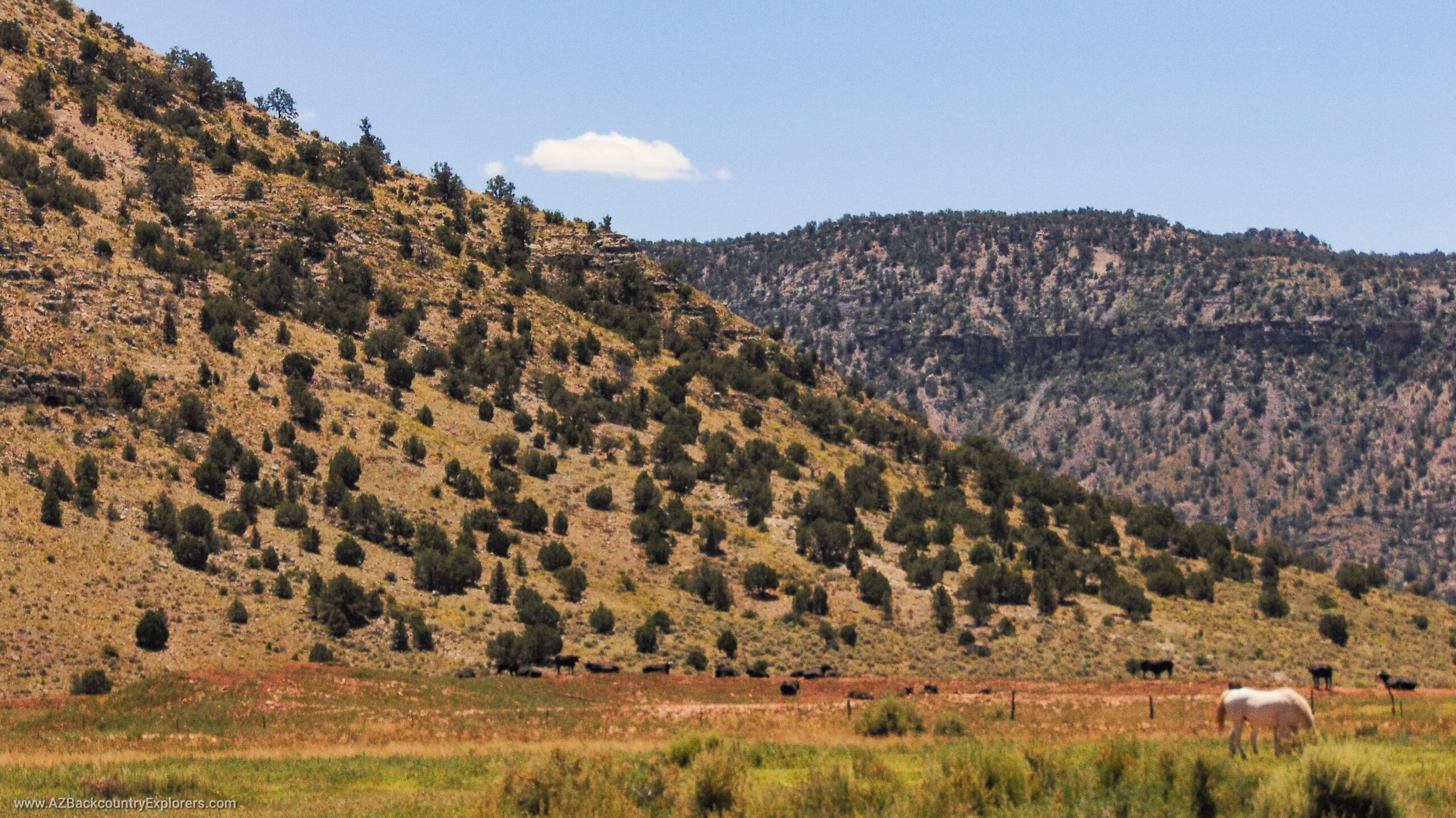
The Arizona Geonome Stewardship Act 2022
The Arizona Genome Stewardship Act is a Constitutional amendment that aims to protect indigenous genomes and aspires to drastically reduce or eliminate agriculture production and consumption while installing various land-use fines, prohibitions, and consumer surcharges.
The Citizens of Western Watersheds have introduced a Constitutional Amendment in Arizona called the Arizona Genome Stewardship Act. The amendment seeks to establish what they call the “Consumers Of Accountability, Sentience, Transformation” (C.O.A.S.T.) Commission Trust Fund to assess, collect, and manage consumer, commercial, industrial, and exploitative, aquatic, and terrestrial animal and toxic consumer product penalty fees.
The commission will charge a 75% penalty fee for aquatic and terrestrial animals or toxic products at the point of sale. It will nearly double the price of every consumer product derived from an animal product or goods that contain any toxic chemicals, including packaged or processed products that incorporate added colors, flavors, nutritional enhancers, oils, sodium, sweeteners, and so on. This will include dairy products, eggs, fish, soft drinks, fast food, automobiles, gasoline, and other consumer goods.
According to Citizens of Western Watersheds, the 75% fee reflects the “external cost imposed upon society by aquatic and terrestrial or other toxic product production.”
This act seeks to establish several commercial and industrial land use penalties, including a $1000 per square foot fine for damaged surface land, $1000 per cubic foot of decimated soil, $1000 per square acre-foot of contaminated water, as well as $1000 per pound of GHG and other particulate matter (dust).
The generated funds will be put into a trust fund and allocated among various programs, including grants and reinvestments in stakeholders who commit to shifting from “techno-exploitive” to “Arizona Genomes Dynamic” ecologically sustainable practices. They give multiple examples, including companies that change from slaughterhouses to greenhouses; ranchers who move from grazing lands to sanctuaries, limiting population, prohibiting breeding, and developing their allotments into wind and solar farms.
The commission will allocate money into several sectors, including agriculture, education, energy, health, and natural resources. Among those sectors, a percentage will be allocated towards a specific cause.
The allocations include:
- 10% retailer credits.
- 5% consumer credits.
- 10% for emergency health.
- 15% to grants that will help shift agriculture technology away from dairy and animal-based foods in favor of plant-based nutrition.
- 5% to shift from non-renewable energy.
- 15% for grants to natural resource remediation implementation.
- 15% grants to shift educational or occupational training programs.
- 10% for C.O.A.S.T. operation.
- 5% C.O.A.S.T. program participation promotions.
- 5% for loan, lien, and insurance subsidy forbearance relief.
- 5% shift program participant legal support.
Forigen or non-indiginous Business and industry
This new law appears to be targeting foreign businesses. However, there is no distinction between locally owned businesses and foreign businesses. This new law arguably establishes any non-native business as foreign as the term indigenous typically refers to Native American Indian tribes.
These regulations will directly affect recreation and other industries on public land, such as tour guides, small-scale miners, infrastructure, wildland fire management, and will equate to a tax collected on behalf of a private organization. It will create a multi-billion-dollar slush fund used to force a vegan lifestyle and rid our state of agricultural production.
This ballot initiative also bans entertainment and “terrestrial and aquatic animal exploitive ventures.” However, the term “animal exploitive ventures” is vague, and it’s unclear whether this applies to hunting, fishing, motorized access, guided tours, or all.
356,467 signatures are required to put it on the ballot.
Arizona campaign finance laws require anyone who wishes to influence an election to register as a lobbyist or start a Political Action Committee (P.A.C.). Lobbyists and P.A.C.s are allowed to file with the Secretary of State to include referendum, initiative, or constitutional amendments on the ballot upon collecting a certain amount of signatures from registered voters. Once the signatures are collected, the proposed law goes on the ballot for a popular vote.
A constitutional amendment is the hardest petition to fulfill, requiring 15% of the state’s electorate as determined at every governor’s race. 356,467 signatures are required to include a Constitutional Amendment on the ballot. However, for some reason, the Genome Stewardship Act only requires 237,645 signatures on the official paperwork on the Arizona Secretary of State’s office website.
We called and spoke with the Arizona Secretary of State’s office, and they did confirm that the Citizens of Western Watersheds P.A.C. is required to collect 356,467 signatures.
Conclusion
There is no denying that the radical ideology of environmental groups aims to erase all forms of multiple uses on public lands.
For some reason, we feel it’s necessary to keep an eye on the number of signatures collected for this proposed Constitutional Amendment. We will be engaging national advocacy groups, local political representatives, and others to watch this closely. We must ensure that all of their signatures are valid Arizona voters and the proper amount is collected, given the discrepancies between the Secretary of State documentation and Arizona law.
This law is meant to shift our current lifestyle and install what radicals call a “social license to operate” by allowing businesses to operate only by approval of a commission and exposing them to public scrutiny. This will harm and criminalize many forms of land use that the C.O.A.S.T. commission does not approve and subject all Arizona businesses to a review under the C.O.A.S.T. Commission to determine if they are complying with new environmental standards. This will transfer wealth from companies deemed unsustainable to those that fall in line with the radical greenwashing agenda of the commission.
Are Americans trying to end their own food supply?
The radical vegan ideology aims to eliminate all forms of animal agriculture and ownership. Proponents of this view argue that animal ownership is exploitative, and they often align with far-left Marxist ideologies. These ideologies contend that ownership is a product of capitalism and is comparable to slavery. Consequently, adherents of these ideologies seek to recognize animals as legal persons, similar to the court’s determination regarding Pablo Escobar’s Cocaine Hippos.
We can come to no other conclusion than that United States citizens, for the first time in human history, are actively seeking to end their own food supply with no alternative solutions in place.
There is much more involved than what we have mentioned here. For the most part, the law is broad and doesn’t explain many details. We suggest that you follow the link below to the original document or read the screenshots we have posted below.
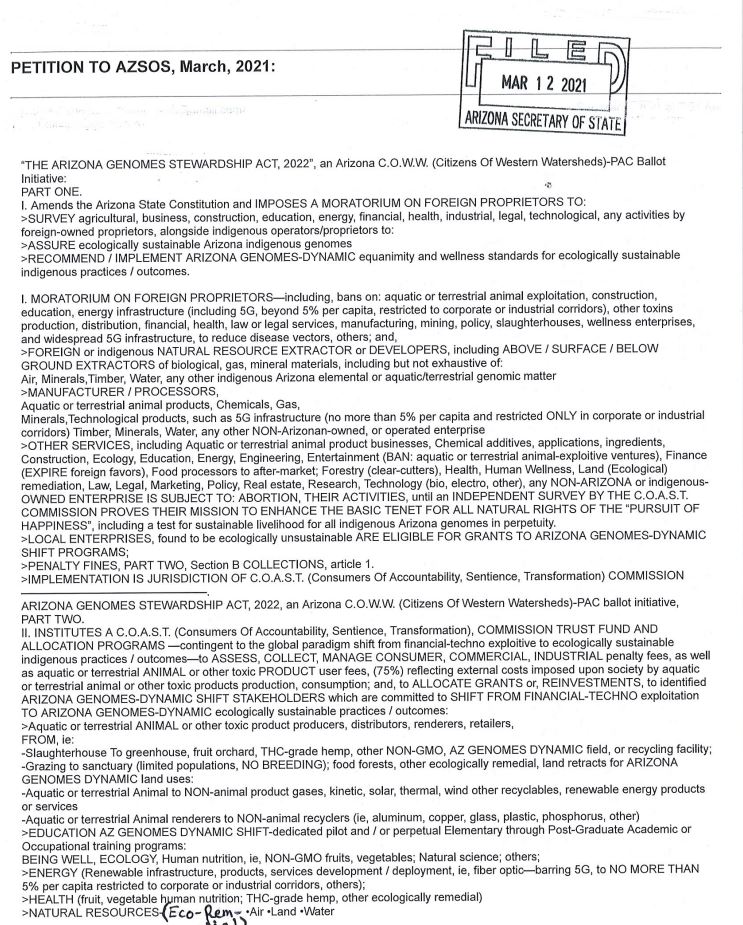
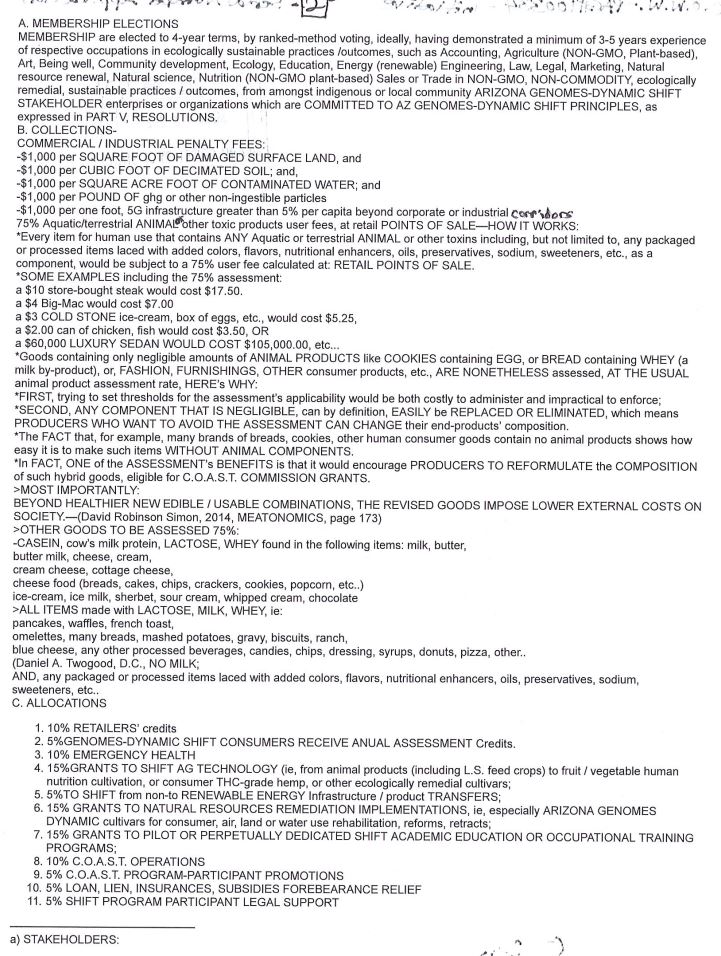
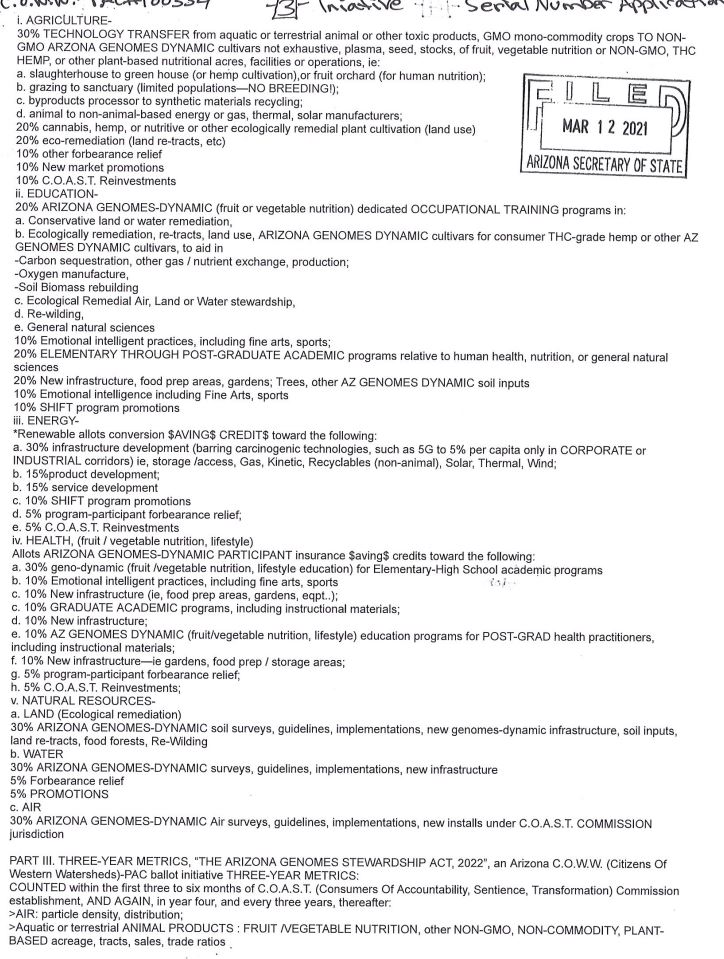
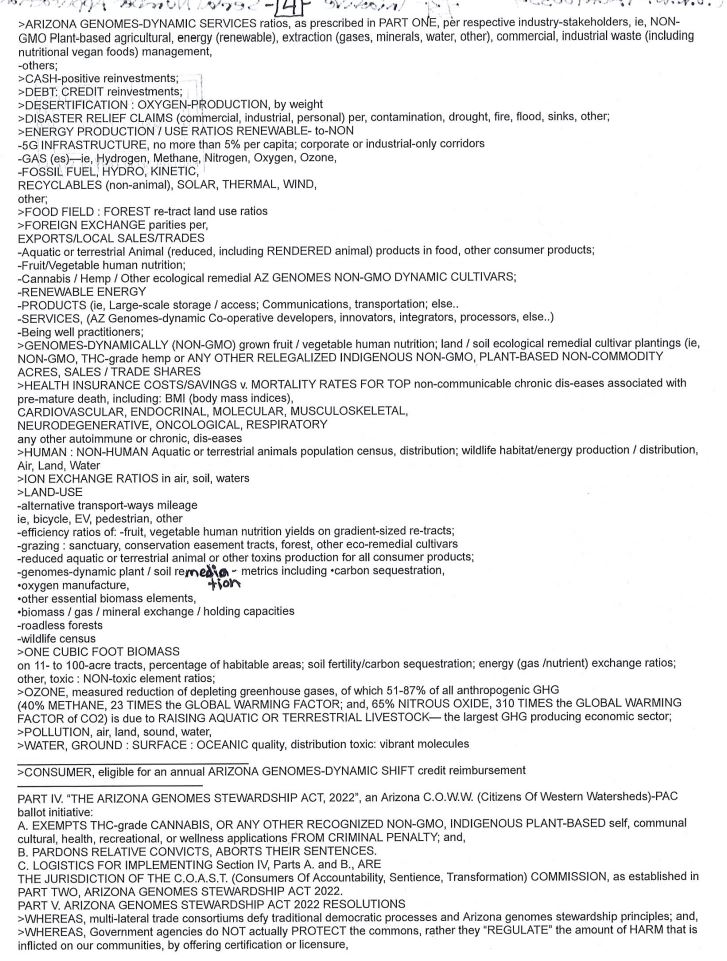
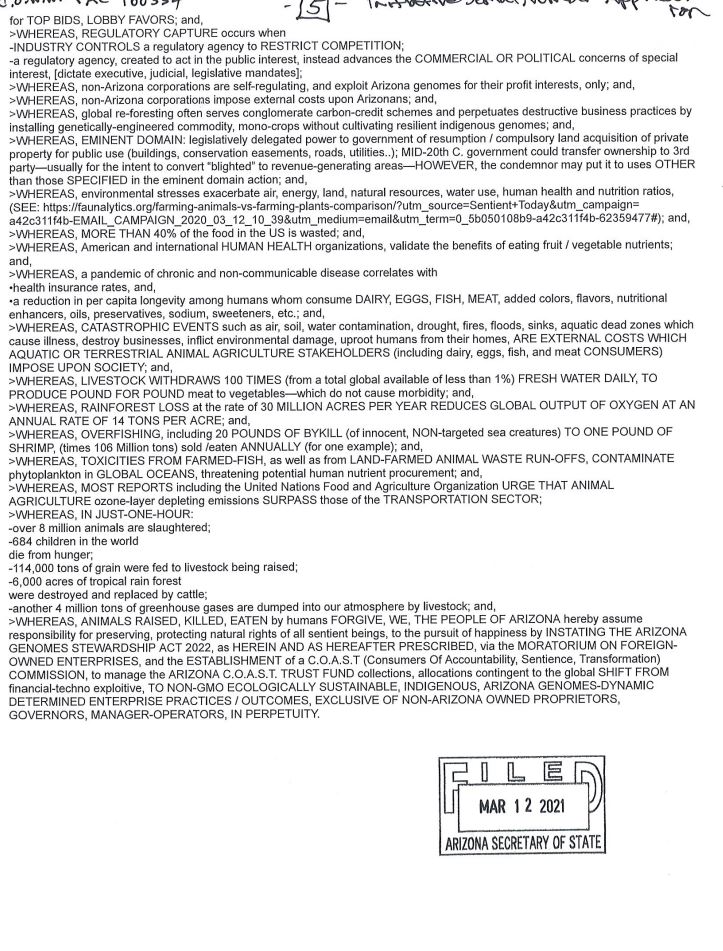
Tags:
You may also like…
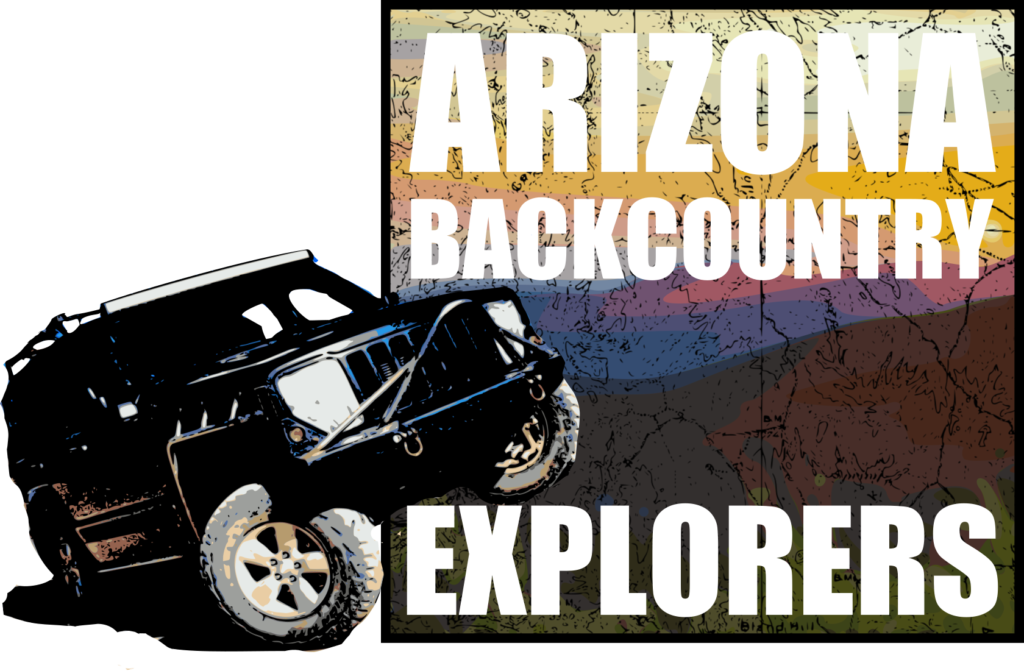
Visit the AZBackroads.com Store
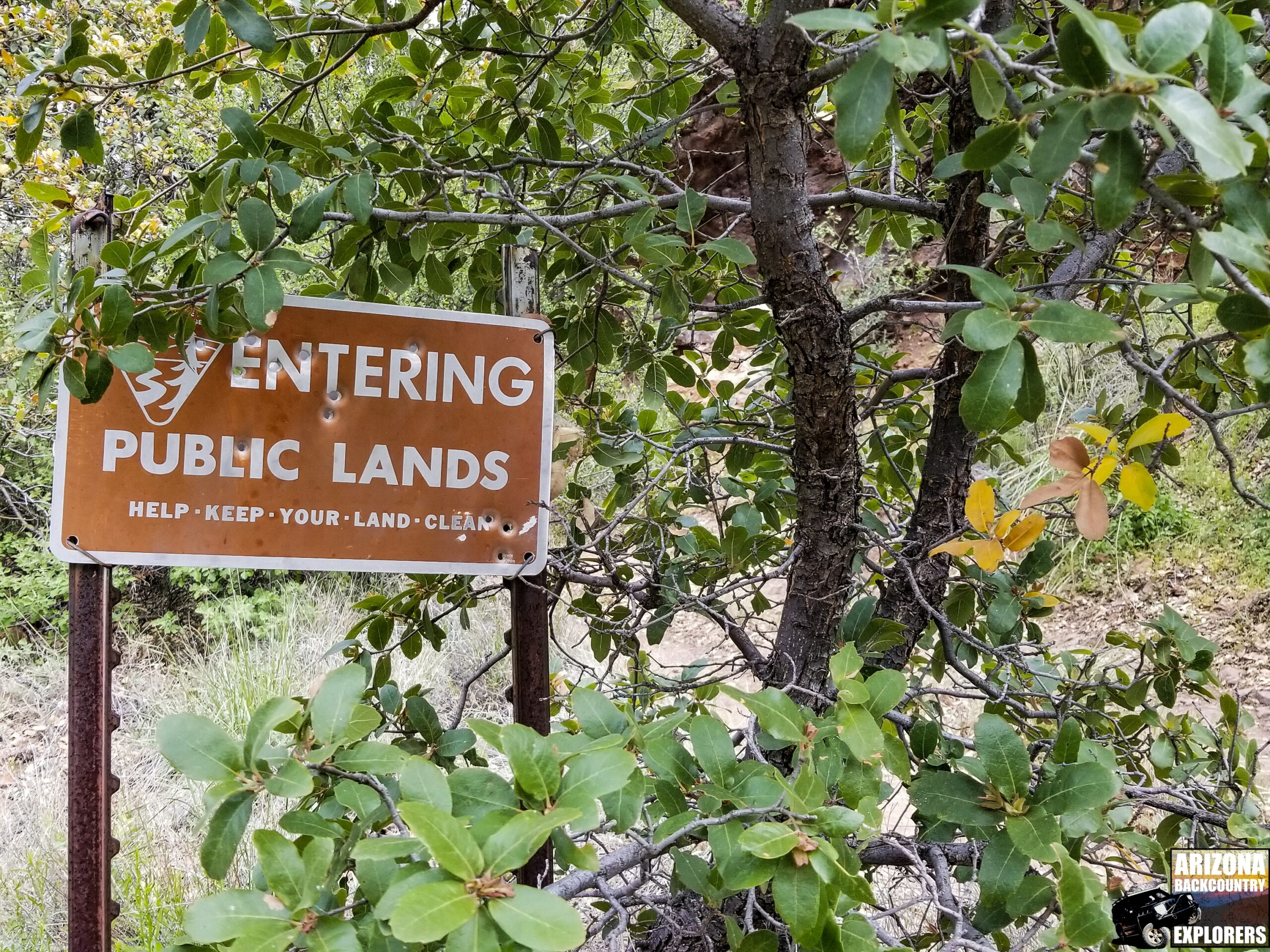
Please Become A Member
We need your help to keep our backroads open. Please join today!
